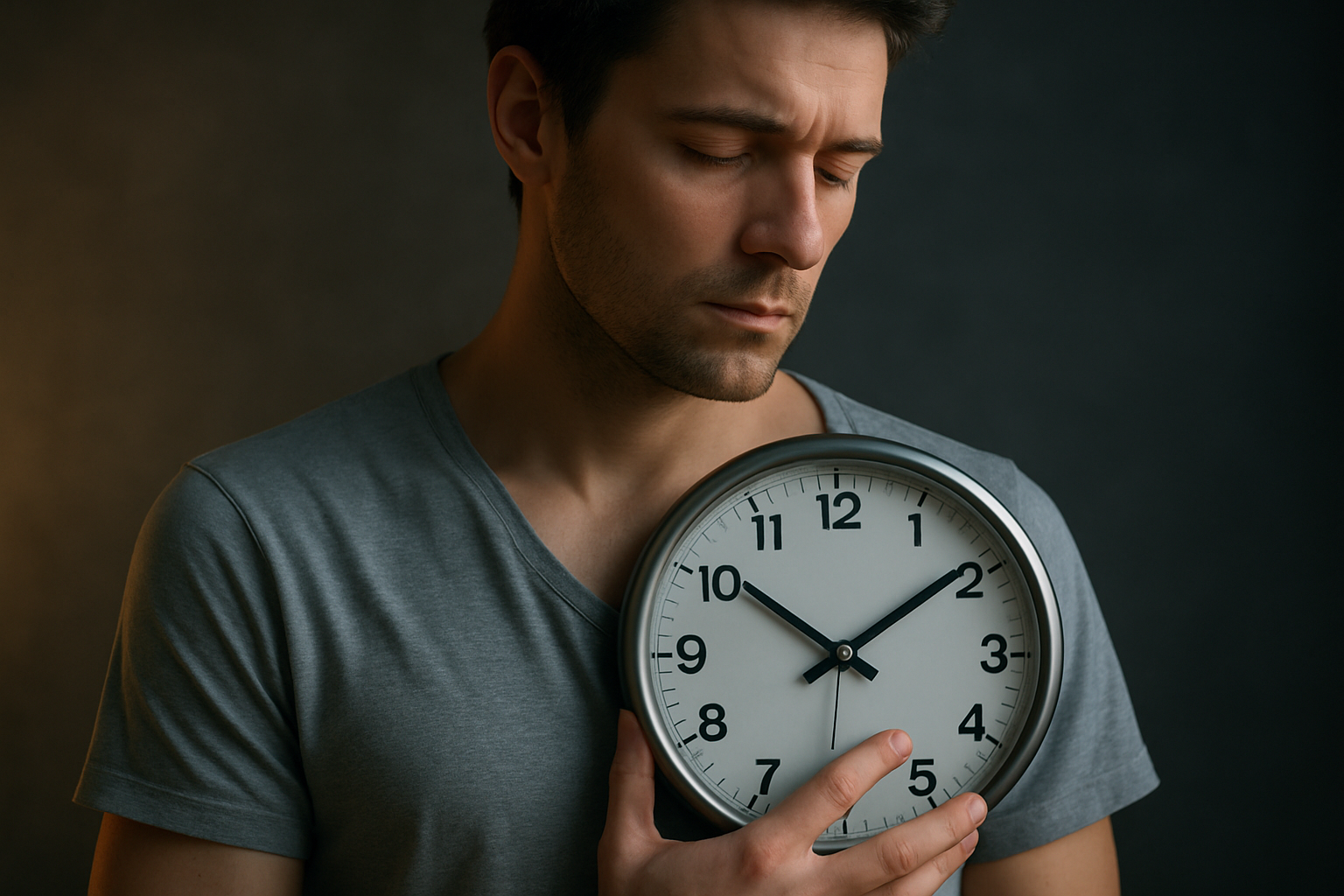Chronobiology: Decoding Your Body's Internal Clock
The intricate dance of our body's rhythms holds the key to unlocking optimal health and well-being. But have you ever wondered why you feel energized at certain times of the day or struggle to focus during others? The answer lies in the fascinating field of chronobiology, a cutting-edge area of research that explores how our internal biological clocks influence nearly every aspect of our lives.

The field of chronobiology has evolved significantly since its inception, with researchers uncovering intricate connections between our biological clocks and various aspects of health, including metabolism, cognitive function, and immune response. As we delve deeper into this realm, we’re discovering that aligning our daily activities with our natural rhythms could be the key to enhancing overall well-being and preventing a host of health issues.
The Circadian Symphony: Understanding Your Body’s Daily Rhythm
Our circadian rhythm, often referred to as our body’s internal clock, orchestrates a complex symphony of physiological processes throughout the day. This 24-hour cycle influences everything from hormone production and body temperature to cognitive performance and mood regulation. Understanding these daily fluctuations can help us optimize our daily routines for peak performance and well-being.
For instance, research has shown that our body temperature typically reaches its lowest point in the early morning hours, gradually rising throughout the day and peaking in the late afternoon. This temperature rhythm correlates with cognitive performance, explaining why many people feel most alert and productive during mid-morning to early afternoon hours.
Similarly, the production of melatonin, the hormone responsible for regulating sleep, follows a distinct circadian pattern. Melatonin levels begin to rise in the evening, signaling to our body that it’s time to wind down, and peak during the night before decreasing in the early morning hours.
Chronotypes: Are You a Lion, Bear, Wolf, or Dolphin?
One of the most intriguing aspects of chronobiology is the concept of chronotypes, which refers to an individual’s natural inclination towards specific sleep-wake patterns. While the traditional classification of morning larks and night owls is widely known, recent research has expanded this concept to include four main chronotypes: Lions, Bears, Wolves, and Dolphins.
Lions are early risers who feel most energetic in the morning and tend to wind down early in the evening. Bears, representing the majority of the population, follow a sleep-wake cycle that aligns closely with the sun. Wolves are night owls who struggle with early mornings but experience a surge of energy in the evening. Dolphins, often associated with light sleepers, may have irregular sleep patterns and find it challenging to adhere to a consistent schedule.
Understanding your chronotype can be instrumental in optimizing your daily routine, from scheduling important tasks during your peak alertness periods to planning your exercise regimen for maximum benefit.
Chrono-Nutrition: Timing Your Meals for Optimal Health
The field of chrono-nutrition, a subset of chronobiology, explores how the timing of our meals impacts our health and metabolism. This emerging area of research suggests that when we eat may be just as important as what we eat.
Studies have shown that our digestive system, metabolism, and even our gut microbiome follow circadian rhythms. For example, insulin sensitivity tends to be higher in the morning, making it easier for our bodies to process carbohydrates earlier in the day. Conversely, consuming large meals late at night may disrupt our natural metabolic rhythms and potentially contribute to weight gain and other health issues.
Implementing chrono-nutrition principles might involve strategies such as time-restricted eating, where food consumption is limited to a specific window during the day, or front-loading calories by having a larger breakfast and lighter dinner. While more research is needed to fully understand the long-term impacts of these approaches, early studies suggest promising benefits for weight management, blood sugar control, and overall metabolic health.
Chronotherapy: Timing Medical Treatments for Maximum Efficacy
One of the most exciting applications of chronobiology is in the field of medicine, where researchers are exploring how the timing of treatments can significantly impact their efficacy. This approach, known as chronotherapy, takes into account the body’s natural rhythms to determine the optimal time for administering medications or other therapeutic interventions.
For instance, studies have shown that the effectiveness of certain cancer treatments can be enhanced by timing chemotherapy sessions to align with the patient’s circadian rhythm. Similarly, research suggests that the timing of blood pressure medications can be adjusted to target the natural surge in blood pressure that typically occurs in the early morning hours.
Chronotherapy extends beyond medication timing. Light therapy for seasonal affective disorder, timing of exercise for managing certain health conditions, and even scheduling surgeries based on circadian rhythms are all areas being explored within this innovative field.
Chronobiology in Action: Practical Tips for Harnessing Your Inner Clock
-
Maintain a consistent sleep schedule, even on weekends, to reinforce your natural circadian rhythm
-
Expose yourself to natural light early in the day to help regulate your body’s internal clock
-
Consider your chronotype when scheduling important tasks or meetings
-
Practice time-restricted eating by limiting food intake to a 10-12 hour window during the day
-
Be mindful of blue light exposure in the evening, which can disrupt melatonin production
-
Align your exercise routine with your body’s natural rhythms for optimal performance and recovery
-
Consider the timing of caffeine consumption, as its effects can last for several hours and potentially disrupt sleep
As we continue to unravel the complexities of our internal biological clocks, it becomes increasingly clear that living in harmony with our natural rhythms can have profound impacts on our health and well-being. By understanding and respecting our body’s innate timing systems, we open the door to a more balanced, energized, and healthful life. The field of chronobiology offers a fascinating lens through which we can view and optimize our daily routines, paving the way for a future where personalized, time-based approaches to health and wellness become the norm.




